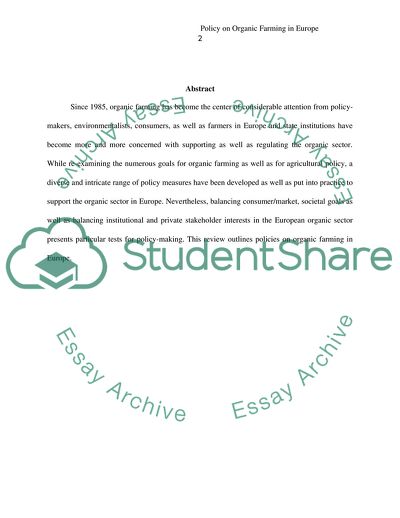Cite this document
(Policy on Organic Farming in Europe Coursework Example | Topics and Well Written Essays - 2000 words, n.d.)
Policy on Organic Farming in Europe Coursework Example | Topics and Well Written Essays - 2000 words. https://studentshare.org/agriculture/1822369-policy-about-organic-farming
Policy on Organic Farming in Europe Coursework Example | Topics and Well Written Essays - 2000 words. https://studentshare.org/agriculture/1822369-policy-about-organic-farming
(Policy on Organic Farming in Europe Coursework Example | Topics and Well Written Essays - 2000 Words)
Policy on Organic Farming in Europe Coursework Example | Topics and Well Written Essays - 2000 Words. https://studentshare.org/agriculture/1822369-policy-about-organic-farming.
Policy on Organic Farming in Europe Coursework Example | Topics and Well Written Essays - 2000 Words. https://studentshare.org/agriculture/1822369-policy-about-organic-farming.
“Policy on Organic Farming in Europe Coursework Example | Topics and Well Written Essays - 2000 Words”. https://studentshare.org/agriculture/1822369-policy-about-organic-farming.


